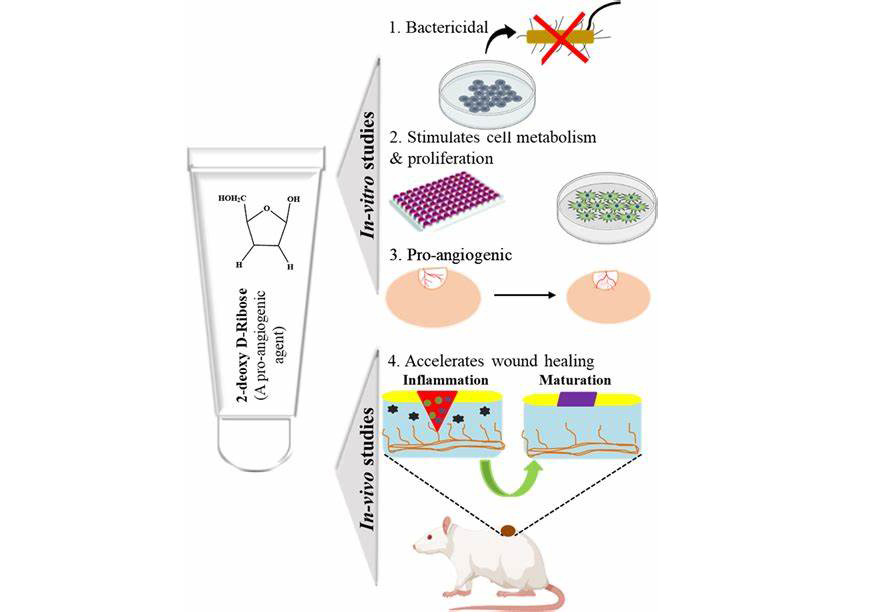2-Deoxy-D-Ribose is a sugar molecule that plays an important role in biochemical and medical research.
Materials of 2-Deoxy-D-Ribose
1.Chemicals and Reagents
- 2-Deoxy-D-Ribose (Sigma-Aldrich or other reliable suppliers)
- Phosphate-buffered saline (PBS)
- Hydrochloric acid (HCl) and sodium hydroxide (NaOH) for pH adjustment
- Enzymes (if applicable, e.g., dehydrogenases for metabolic studies)
- Solvents (e.g., ethanol, methanol, or water for dissolving)
- Indicator dyes or reagents for spectrophotometric analysis (e.g., thiobarbituric acid for oxidative stress studies)

2.Equipment
- High-performance liquid chromatography (HPLC) system for purity and concentration analysis
- UV-Vis spectrophotometer for absorbance measurements
- pH meter for buffer preparation
- Centrifuge (for cell culture studies, if applicable)
- Microplate reader for biochemical assays
Methods of 2-Deoxy-D-Ribose
1.Preparation of 2-Deoxy-D-Ribose Solution
- Dissolve the required amount of 2-Deoxy-D-Ribose in deionized water or buffer.
- Adjust the pH as necessary using HCl or NaOH.
- Filter-sterilize (if used in biological experiments).
2.Analytical Techniques
- HPLC Analysis: To determine the purity and concentration of 2-Deoxy-D-Ribose using a carbohydrate analysis column and a refractive index detector.
- UV-Vis Spectrophotometry: Used in oxidative stress studies to measure malondialdehyde (MDA) levels via thiobarbituric acid reactive substances (TBARS) assay.

3.Biological Assays (If applicable)
- Cell Culture Experiments: Cells are incubated with different concentrations of 2-Deoxy-D-Ribose to study its effects on oxidative stress, apoptosis, or metabolism.
- Enzymatic Assays: Measuring the activity of dehydrogenases involved in 2-Deoxy-D-Ribose metabolism.
Would you like more details on a specific application or method?
